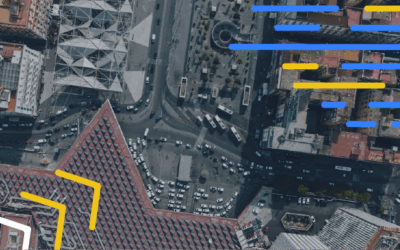Samantha Emery at Lloyds Banking Group says: “The initiation of the Sterling Fnality Payment System is a unique event, which will not only revolutionise settlement but transform how Financial Institutions manage their future liquidity needs.”
In a parallel development last December, the UK Treasury released laws enabling financial firms to test out new blockchain technologies. Banks have been testing blockchain technology for years, either alone or in small groups, with varying degrees of success.
Sabih Behzad, head of Deutsche Bank’s digital assets transformation notes that: “Today’s processes are really inefficient. Collateral management and intra-day repo are the two big areas everyone’s looking into.”
Importance and regulatory framework of £FnPS
The success of £FnPS is not only attributed to technological innovation but also to the commitment of UK authorities and the robust regulatory framework in which Fnality operates. Recognised and designated by HM Treasury, with regulatory assessments by the Bank of England, £FnPS underscores the significance of regulatory compliance in implementing real-time liquidity solutions.
This achievement serves as a stepping stone for expanding to other core currencies like USD and EUR, aligning with the vision of creating a global liquidity management ecosystem, impacting payment, payment versus payment (PvP), and delivery versus payment (DvP) transactions.
The global trend towards real-time payment
The financial industry is experiencing a surge in initiatives, with a notable focus on emerging Market Utilities and Financial Market Infrastructures like £FnPS. This trend is driven by the dynamic evolution of real-time gross settlement systems (RTGS) and the imperative to effectively manage settlement risks. With 2020 marking a high in new company formations globally, even amidst a pandemic, the importance of international payment systems for online transactions and cross-border activities has become evident.
Initiatives like Bank Indonesia Fast Payment (BI-FAST) in Indonesia and similar launches in countries like India, Singapore, Thailand, Australia, Hong Kong, and the Philippines highlight the global trend towards real-time payments, driven by regulatory changes and a shift to digital economies.
Ruben Salazar, Global Head of Visa Direct says: “Real-time payments are the largest and most important macro trend that we are experiencing in the industry.”
Optionality and caution in adoption
The increasing number of real-time payment networks globally, supported by new regulations, emphasises the importance of optionality and choice in the financial ecosystem. However, as we embrace these transformative technologies, caution is essential to avoid unintended consequences such as friction, fragmentation, and new risks.
Nick Nicholls has spent 35+ successful years in investment banking and capital markets, working in prominent roles across front, middle and back office functions, he says: “The analogy of past technological shifts, from horse and cart to the automobile and plane, suggests that a hybrid model might emerge, with clearing and settlement taking different routes based on best-fit factors like convenience, cost, frequency, speed, and risk management.”
Urgent case for real-time liquidity management
As money moves faster and technologies like distributed ledger technology (DLT) become prevalent, real-time liquidity management becomes imperative. The ability to monitor transactions in real time enables financial institutions to gain insights, manage risks, and make dynamic decisions.
Finteum has created a global financial market for intraday FX swaps on distributed ledger technology (DLT). Most finance DLT applications are replicating existing transactions on-ledger to increase transparency and cut costs, but Finteum uses the power of DLT to create a valuable market for intraday liquidity that was previously difficult to achieve.
Finteum is a bank-led initiative, and exemplifies how technology and automation can streamline processes, and contribute to a more secure and efficient financial ecosystem.
£FnPS is a milestone in real-time settlement
The announcement of £FnPS not only symbolises a pivotal moment in the financial industry’s trajectory towards real-time settlement systems but underscores the pressing need for adaptive and resilient solutions. This transformative shift is not just about embracing technological advancements; it is a strategic response to the challenges embedded in conventional settlement processes.
Motivation to break settlement chains
Banks, recognising the drawbacks of settlement cycles within the T+2 or T+3 range, are increasingly drawn to the idea of tokenising collateral. The inherent counterparty risks and complications arising from custodians operating in different jurisdictions have prompted financial institutions to seek alternatives. Blockchain eliminates all these bureaucratic hurdles, enabling swaps to be executed with remarkable precision, down to the minute.
Real-time monitoring is no longer ‘nice to have’
Real-time treasury management is becoming essential, more so as instant payment schemes proliferate and increase in size. Real-time monitoring makes even more sense when taking into account the new reality of potentially faster and larger outflows of deposits.
Regulators are also emphasising the need for banks to account for intraday liquidity needs in their recovery and resolution plans.
Real-time liquidity expert Pete McIntrye says: “At Planixs, we have intraday systems live in banks processing millions of transactions per day and, in our own testing labs, we regularly process tens of millions per hour. We know that the Realiti platform will work for any consortium that wins out in the blockchain revolution.



